Fences, patrols, and wandering borders: The Situation between Georgia and Russia ten years after the war, still tense – especially for the people who live in close proximity to South Ossetia.
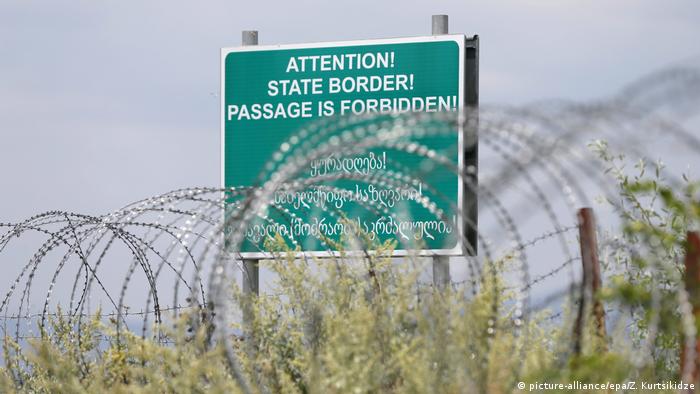
The border to South Ossetia is secured with barbed wire and warning signs
As Ilya Bervashvili also occurs on his fields of Grain, the blue circle on the map its App behind the dashed line. But no one should trust an App when it comes to this limit. Things are much more complicated than they appear on Google Maps.
The farmer, pointing to the green sign, which is exactly on his Land. It is the “state border” between Georgia controlled territory and the Region of South Ossetia. It is recognized worldwide, only five countries as a sovereign state. One of the countries Russia, which supports South Ossetia and defended. Georgia looks to be the limit rather than “occupation line”. In many Places the border is not marked, however, and it is known that it moves. Here in the village of Ditsi, there is only a small green border fence. On both sides of the fence – nothing.
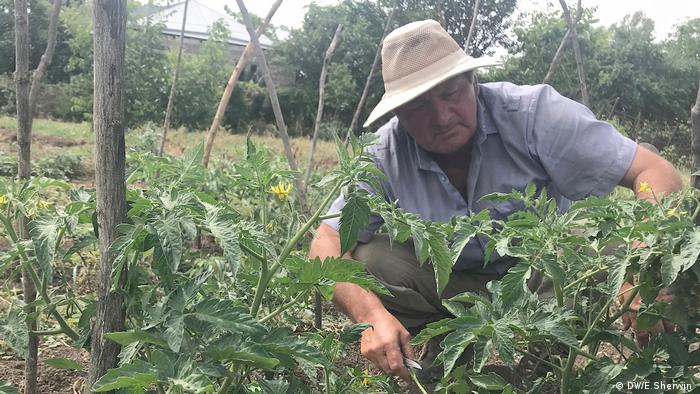
Ilya Bervashvili taking care of his tomato plants in the immediate vicinity of the border with South Ossetia is
“They are directly behind my country,” says Ilya, and refers to the Russian border guards. You over patrolling his fields along, directly on the plate. “I work all the way along to the edge of my country. They don’t bother me and I won’t bother you. But they patrol behind my country.” He moves his hat out of canvas. “If you say Hello and talk to me, I answer you.”
The wandering border, swallowed the country
Ilya has previously worked for the Georgian police, since 15 years he is a farmer. In addition to the cereals he grows pears, nuts, grapes and raspberries. Chickens running about the yard of the stone house. The Land belongs to the family since generations. The moving border to South Ossetia has already swallowed a portion of his property. But it is the psychological pressure by the war, who charged him a lot more.
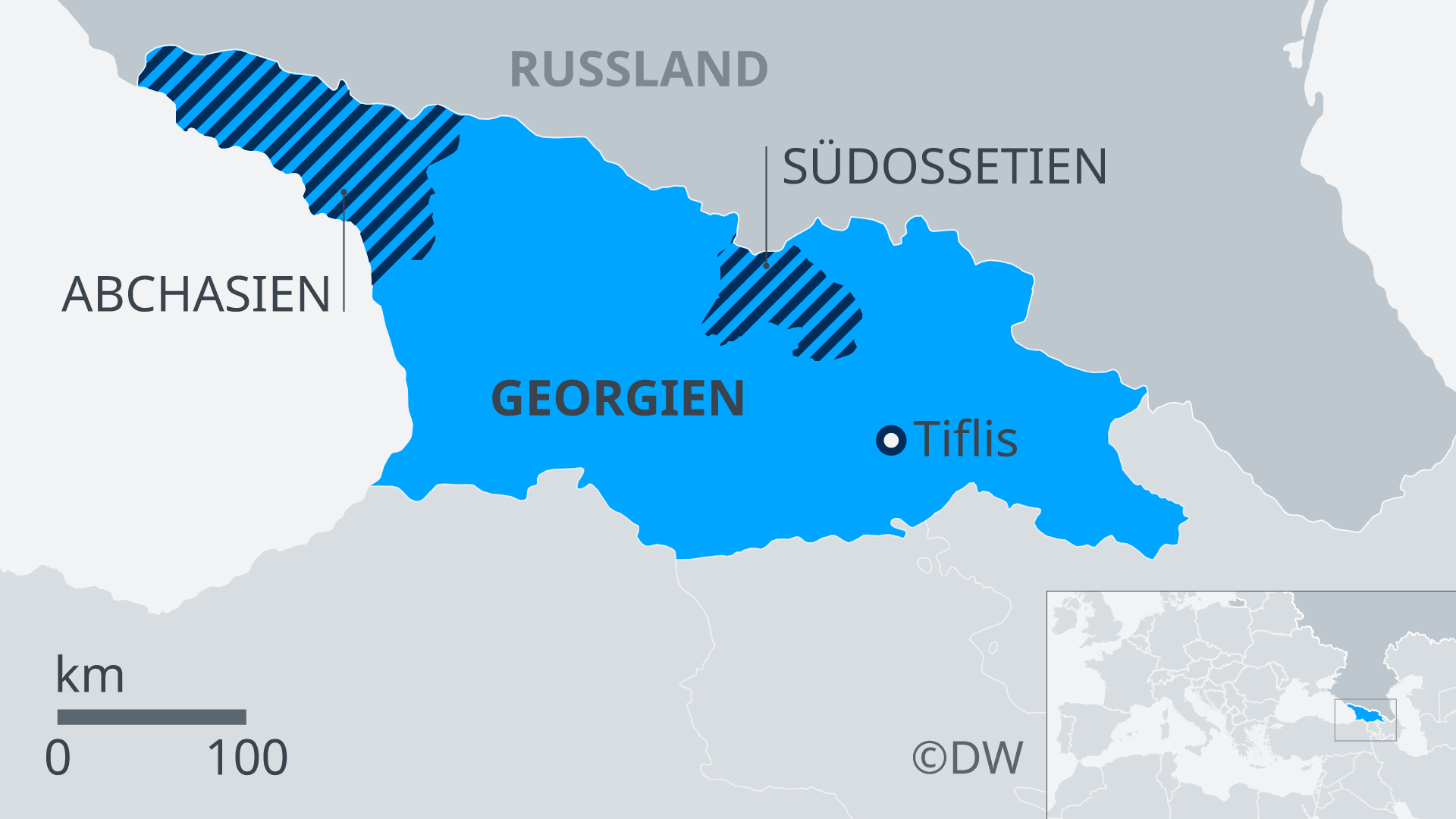
In August 2008, tensions between Russia and Georgia escalated. It went to the broken away regions of Abkhazia and South Ossetia. When Georgia took control of Tskhinvali, the capital of South Ossetia, said Russia with tanks and attacks from the air and argued that it was a matter of the protection of the Russian population in the Region.
“I was at home. I looks from here. It was not easy to observe what happens, because you have everything around us is bombed,” says Ilya. Six grenades were flown on one of his fields. “And you can still see where the shrapnel hit the pole over there.” He points to a Power pole.
Fear of prison and fines
Ilyas’s mother, Venera Edisherashvili, leans over the porch in front of the house. She sits on a wooden chair and resting. The 84-Year-old told that one of their three sons was killed in this war. “At night I can’t sleep sometimes because I’m afraid for my son. I’m afraid that they will come.”
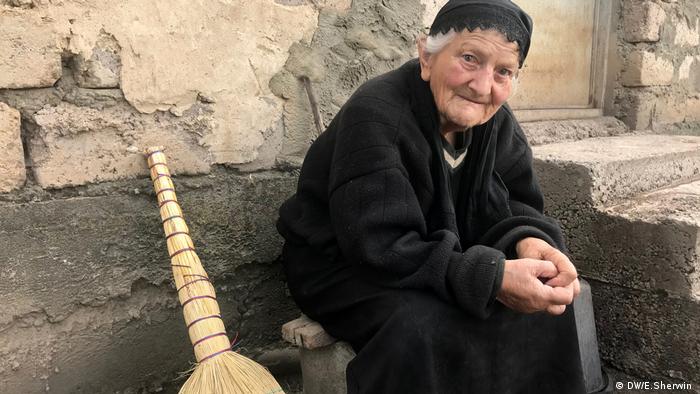
Venera Egisherashvili mourns the loss of one of their three sons who fell in the war against Russia
Ilya followed, however, rather the potential risk of boundary line to South Ossetia. “You can feel the tension the whole time. If you cross the line, then you can grab you a fine, moving to slap you in jail. When our animals cross the border, then you can take them. You run around here and say what belongs where. You run around with dogs and weapons – it puts you in a certain psychological state.”
Situation to watch closely
On the one hand, observers classify the controversial line, which has been relatively stable. Erik Høeg, the Chairman of the EU observer mission in Georgia. He describes the De Facto border in many Places as “hardened”, more and more fences. This process reduced in size in some cases, the country of the people, divides families and limits their freedom of movement.
Høeg has stated that the Situation was “relatively stable” in the sense that no one shoots at the administrative border. The concept of the so-called “Administrative Boundary Line”, using the European Union, to describe the border between the Georgia-controlled territory and the breakaway regions.
But Alone the fact that a large number of armed people was pretty close to the administrative border, was reason enough to observe the Situation well, says Høeg. “Especially if there is no community agreement on where the border runs. In these areas, there are many uncertainties. Therefore, we are with 200 observers around the clock.”
The EU Mission patrolling here since 2008 and also operates a telephone Hotline to which people from both sides of the conflict can contact if they observe incidents. So it was in the past year, more than 150 took along the border, as the EU observer reports.
From cold conflict to the hotspot?
Lado Bitshashvili works in the branch of the non-governmental organization “Human Rights Center” in the Georgian town of Gori. Even after ten years, all parties to the conflict to continue, be careful, he is convinced: “Only an incident can lead to this frozen conflict is again a stove to a crisis. It is very important that all sides make sure that the escalate incidents that take place.”
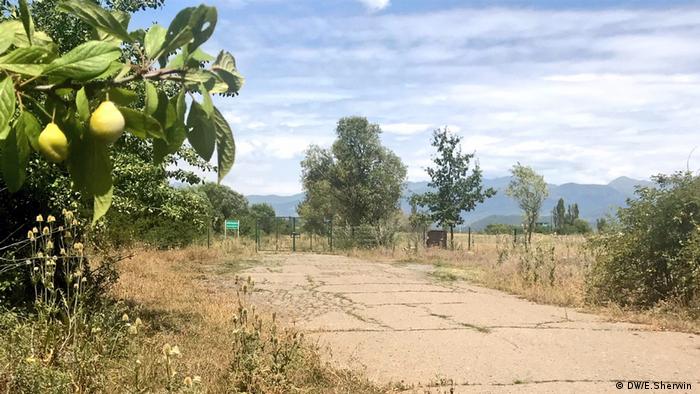
The administrative boundary line to South Ossetia is marked by green signs
Meanwhile, Ilya and his mother Venera are in Ditsi ready to compete. “My son and I are the guards of the unpaid border,” says Venera with a laugh. You have the phone number of the EU the Council of Europe should do something on the border, kids.
Ilya is just as determined. “This is my piece of Georgia. This is my part of my home,” he says. “I’m not going to make a move for anyone. As long as I live, you will not touch the boots of the Russian soldiers that floor.”
A little bit of hope
Although a lot of the uncertainty of the war has brought, and will continue to exist: There is a small indication that things are on the move in Ditsi forward. Because of a conflict between the town’s water supply was interrupted, which came out of South Ossetia. But three years ago, the authorities opened the water from a river near in the city. A month ago, new metal lines, so that the water stations directly to the farmer, the people can come.
By Ilyas field, a small stream flows. “Soon, the raspberries are ripe,” says the farmer.